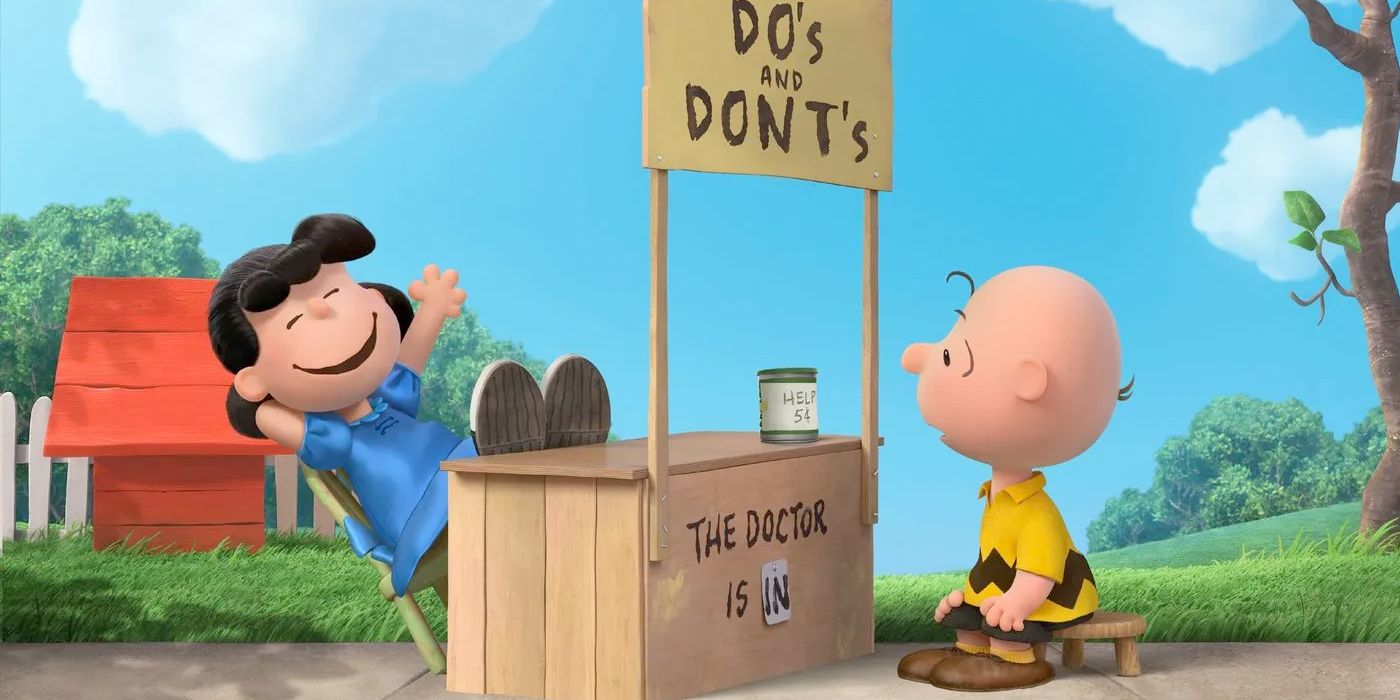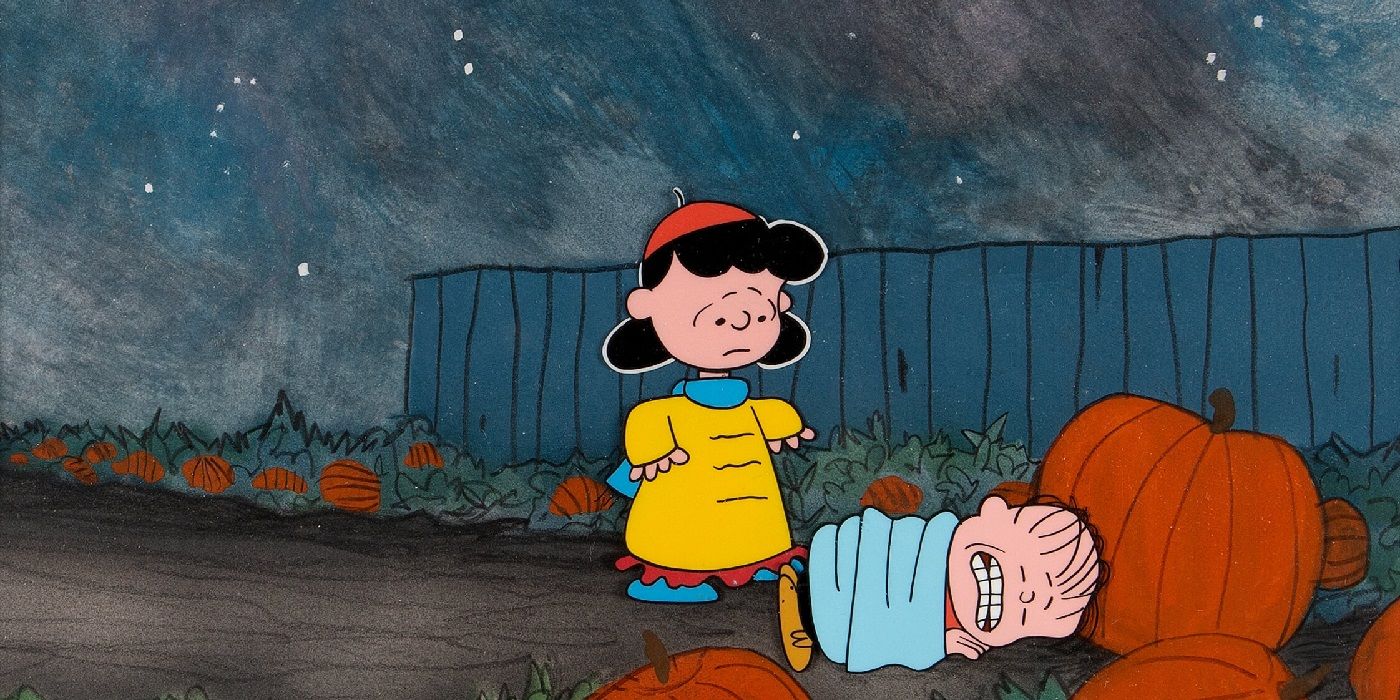Lucy Van Pelt has a long-standing reputation as the Peanuts' resident bully. From the earliest cartoons, Linus's "crabby older sister" comes across as assertive, openly critical and often mean. Her signature move -- pulling the football away just as Charlie Brown tries to kick it -- has become a pop-culture shorthand for any disingenuous offer from a bad-faith actor. It often made her the antagonist in the comic strips, as well as contributing to the problematic stereotype of "the bossy woman."
While there are good reasons for those impressions, the character herself is far more nuanced than people give her credit for. Peanuts creator Charles M. Schulz often displayed her more affectionate side, particularly towards her brothers Linus and Rerun as well as Charlie Brown himself. That shows up more than once during the vast collection of Peanuts holiday specials, including some of the most beloved. She may be thought of as "crabby," but like all of Schulz's characters, Lucy has a lot of depth beneath the surface.
Lucy's Meanness Is Couched in Honesty
In a 1967 interview with Psychology Today, Schulz noted the gender dynamics that make Lucy the strip's go-to mean person. A boy is just a bully, but a girl -- with all the strikes against her in male-dominated society -- becomes more of an underdog. Schulz felt it lent humor to the conflicts Lucy creates, as well as mitigating her bullying. He also stressed her honesty, which further tempers her personality. "She can cut through a lot of the sham," he says. "And she can really feel what's wrong with Charlie Brown which he can't see himself." That plays out numerous times in the comic strips, where she reveals a deep streak of sympathy for Charlie Brown and her other friends. Her mean side never vanishes, but it does reflect her often-understandable frustrations at the foolishness around her.
That gives much of her behavior more complexity than it appears, even the football gag. In a series of Peanuts comics strips that ran in the summer of 1979, Charlie Brown has to go to the hospital. When she learns about it, Lucy breaks down crying -- worried about his health -- and promises to never pull the football away again if he gets better. When Charlie Brown comes home, she reluctantly holds true to her word, only for him to inadvertently kick her instead. "YOU MISSED THE BALL, YOU BLOCKHEAD!!!" she screams in obvious pain, and ends up having to go to the doctor herself to put her arm in a cast. Pulling the ball away is apparently as much an act of self-preservation as cruelty.
The TV Specials Often Show Lucy's Kinder Side
The TV specials often showed Lucy's bullying behavior, couched in a seemingly perennial foul temper. But they also take care to show her sympathetic side too. In I Want a Dog for Christmas, Charlie Brown, for instance, she tries to help Rerun understand that owning a pet comes with expenses and responsibilities. Later, she signs him up for a Christmas play in hopes that it will make him feel better. She does something similar in the original A Charlie Brown Christmas when Charlie Brown tells her that the holiday is bringing him down. Lucy then tries to help by making him the director of the Christmas play and demonstrates faith in him. "I'll be there to help you," she promises when he doubts his abilities.
Perhaps the most telling sign comes during It's The Great Pumpkin Charlie Brown, arguably the best of all The Peanuts specials. Lucy makes sure to get extra candy on her trick-or-treating rounds, which she saves for Linus while he attends to his fool's errand in the pumpkin patch. She later awakens in the middle of the night and quickly realizes that Linus is still outside waiting for The Great Pumpkin. Despite the hour, she goes out in the cold to fetch him, and even helps him take his off shoes before getting him safely into bed. The moment reveals her sense of responsibility and caring nature, as well as providing an understandable reason for being mean sometimes.
Lucy's temper will always be a part of her character, and her darker qualities still embody problematic stereotypes. But she's also more than the sum of her parts, which both Schulz and the animated specials use to give her real depth and complexity. The truth can be painful, and no one in the Peanuts gang is more aware of that than Lucy. Her flaws make her human, and also help the audience recognize themselves in her. Her kinder side only serves to make her more relatable.


.jpg)
